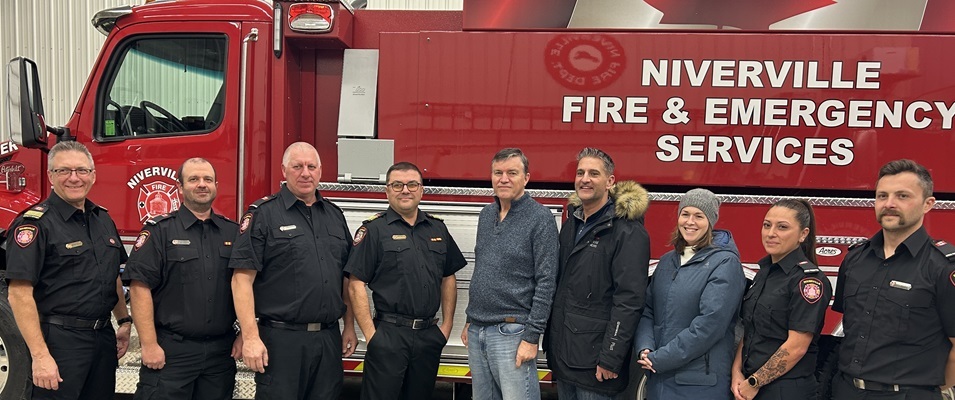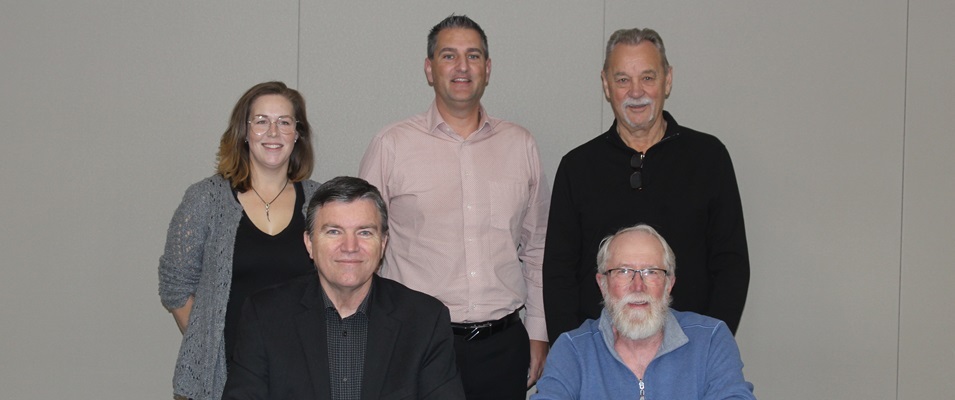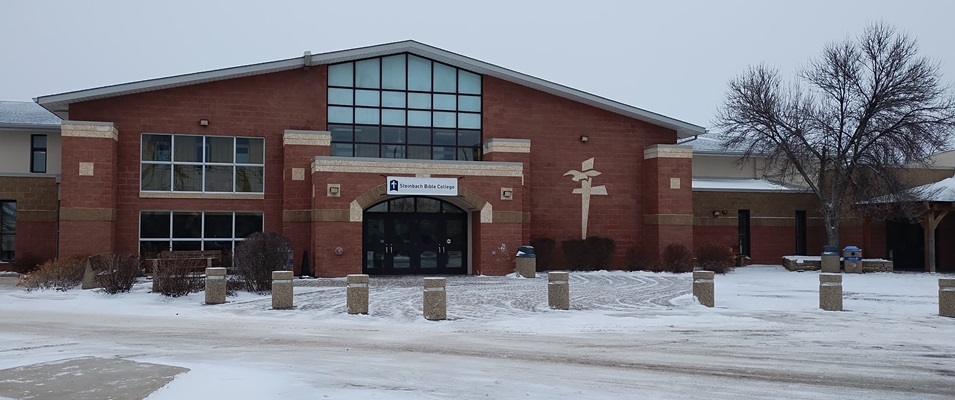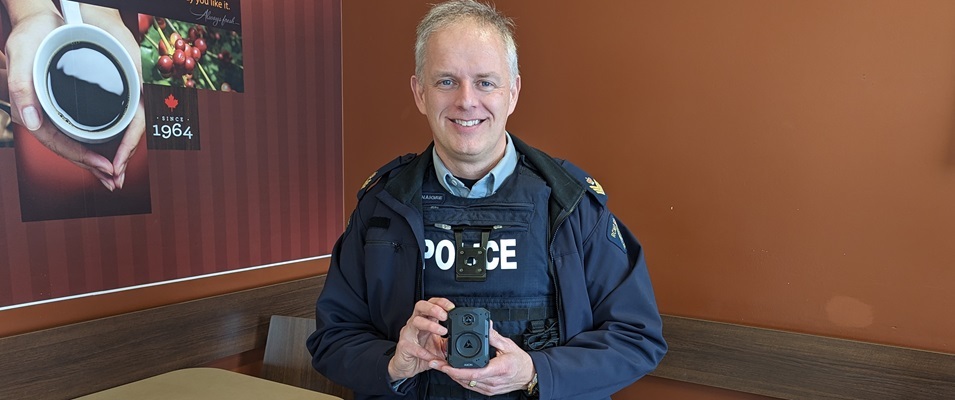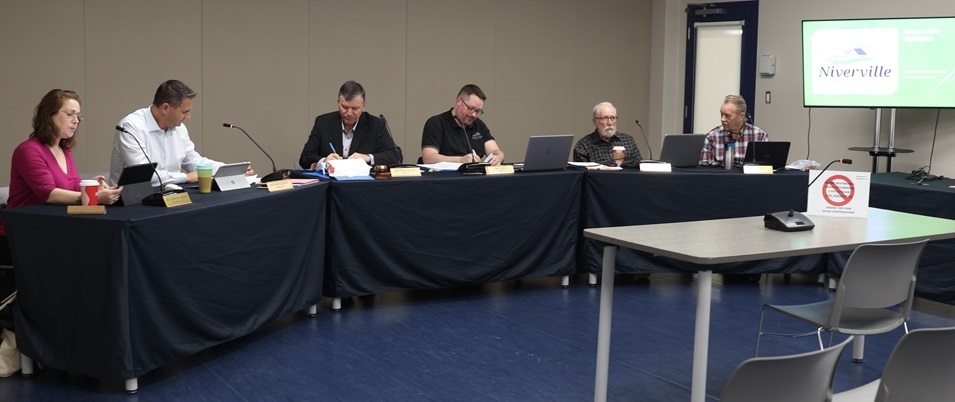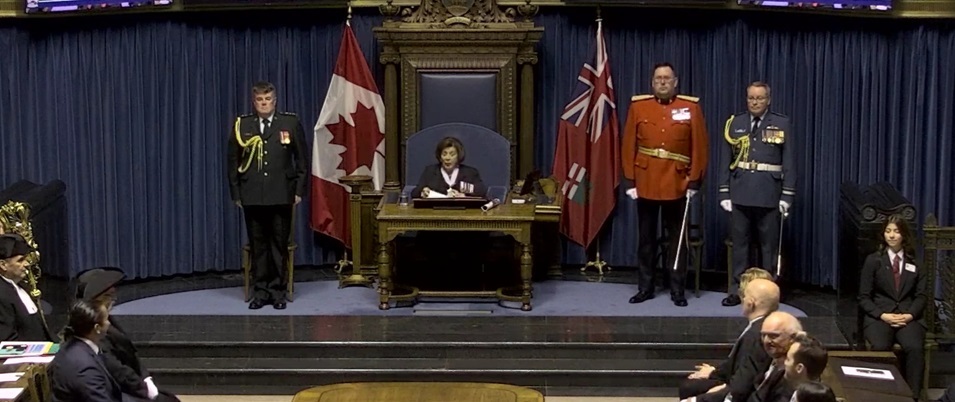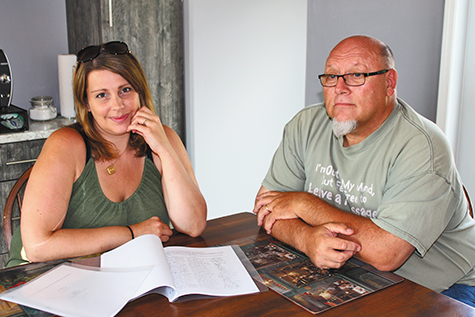
On July 18, two Niverville residents presented a petition requesting an audience with the five-member council to demonstrate what Niverville residents have to say about alternative policing options. Together, Barry Piasta and Lindsay Unrau offered a list of 540 signatures which they had spent the previous three weeks collecting in a door-to-door campaign.
The petition included a thoughtfully articulated overview of its purpose: “We the residents of Niverville Manitoba request that Town Council immediately develop a feasibility study to determine the effectiveness of establishing its own police service as an alternative to utilizing the services of the RCMP.”
Three main incentives were behind the request. One, the RCMP’s recent stats show a significant increase in crime in Niverville. Two, the community’s growth trend indicates the possibility of reaching 5,000 residents by 2018. Three, some are concerned that council will delay addressing police services until 2021, after the next census is released.
“The main goal, for me, was to have the town look into policing options, comparisons of cost, and the types of service we would get for those costs,” says Piasta.
The duo’s goal has been to encourage council to take a more aggressive approach into researching the policing options available to the community. Both Piasta and Unrau admit that an independent police force may, in fact, not be the right fit for Niverville, but the residents won’t know for sure until detailed research is in and the numbers have been crunched.
“[Our objective was] to give the residents of Niverville a voice [and] to remind town council that they are representatives of the residents,” says Unrau. “The main goal overall is to find a solution to our ever-expanding crime rate, because what we currently have is not working.”
The duo worked tirelessly, visiting as many homes as possible in the weeks prior to the council meeting. Though they were unable to visit every home, Unrau says they made a concerted effort to collect signatures from a variety of neighbourhoods, including a broad spectrum of age groups and income levels.
“Five hundred [signatures] may not be the entire town… but it is a really great unbiased sample of all voices from Niverville,” says Unrau. “Whether they live in the newer areas where higher taxes are paid, or in the older area of Niverville where taxes are lower, we managed to accumulate all different types of voices.”
Unrau says that they aimed for door-to-door visits of two minutes or less in order to cover as much ground as possible.
What they discovered was the passion the subject evokes from residents. Many were unaware that council will be required by law to invest significantly more tax dollars for RCMP services once the next census indicates the community has reached 5,000 residents or more.
Unrau also notes the high level of misinformation people have about policing services, demonstrating the need for a feasibility study.
“Residents responded well to our petition,” Unrau says. “Many didn’t hesitate to sign once they’d learned that we were there to ask them for support in telling council that we wanted more done about our crime. Many were very honest and willing to share their own personal stories of how crime in Niverville had affected them. It was incredibly eye-opening and heartbreaking to learn just how many of our residents have been victimized over the last few years.”
She adds that, out of the 300-plus homes she visited, only 10 to 15 people chose not to sign the petition. For her, it was another good indication that the majority of Niverville’s residents are interested in change.
Piasta wants part of the study to include a cost comparison between a solo police force for Niverville alone and a police force that’s shared with other municipalities, like Ritchot. He believes sharing the services would distribute the costs over a larger population and make the endeavour more feasible. He personally hopes council will make this information readily accessible to residents in all of these communities, with an option for Niverville residents to decide through a referendum in the upcoming 2018 municipal election.
He also lists examples of spin-off benefits that a community or region could derive from a police force, such as new jobs, construction and maintenance of a centralized building, local repairs and maintenance to police vehicles, and growth for the region as new families move into a safer community.
The petition included a deadline of late November, by which time residents should expect the study to be complete.
“November is typically the month when the town budget is assembled,” says Unrau. “We hoped that [council] could implement the cost of a feasibility study into next year’s budget.”
She adds that if the study is completed earlier, and a decision for an alternative police force is made, the costs to create it could be factored into a short- or long-term budget plan.
“If we had no deadline, then there could be the potential for council to drag it on longer,” says Piasta, adding that they also had concerns that the policing issue could be used as a platform for the 2018 election. Performing the study now means that some direction will already be in place before the campaign begins.
Overall, the duo was happy with council’s response. Council indicated to the pair and others present that they would take the request seriously and attempt to provide answers on or before the deadline. Councillor Nathan Dueck reminded everyone that, though a formal study may not have been in their plans at present, improved policing options are constantly on their minds.
Since that time, Mayor Myron Dyck has shared information about how council has begun the process.
“Council met today to discuss policing and also met with the RCMP Staff Sergeant and one of his corporals,” wrote Dyck on a community Facebook group earlier this month. According to the mayor, town office staff will begin seeking someone who can perform a police study specific to municipalities. Staff will also research the cost s incurred by other communities with independent police forces.
Regarding their meeting with RCMP staff, Dyck indicates that the RCMP will provide Niverville with a weekly update on crime which will be released regularly to local media. The RCMP have also set up a special task force to mine data about the areas where crimes takes place and at what time of day.
“This will allow the Staff Sergeant to better apply the necessary resources to those places and times and peak periods of criminal activity in our community,” says Dyck. He adds that nine arrests have been made in conjunction with thefts in town since January. He goes on to stress the need for continued call-ins of suspicious activity to the RCMP.
Resident Task Force
As for Unrau and Piasta, they say the formation of a resident task force is their next step.
“We have a few people already on board, one who is a correctional officer,” Unrau says. “We would like to find a group of Niverville residents who will represent the community as a whole.”
The purpose of the task force would be to give guidance to a new policing initiative should the community decide to move in that direction. They hope to create a committee of members of all ages and income levels, including members who have worked in the emergency medical field and RCMP officers who may be allowed to invest time in such an endeavour.
“We have no agenda other than to make Niverville a safer place for all residents,” says Unrau. “We understand that this is a sensitive issue and we fully believe that more information, collective opinions, and experience is the key.”





